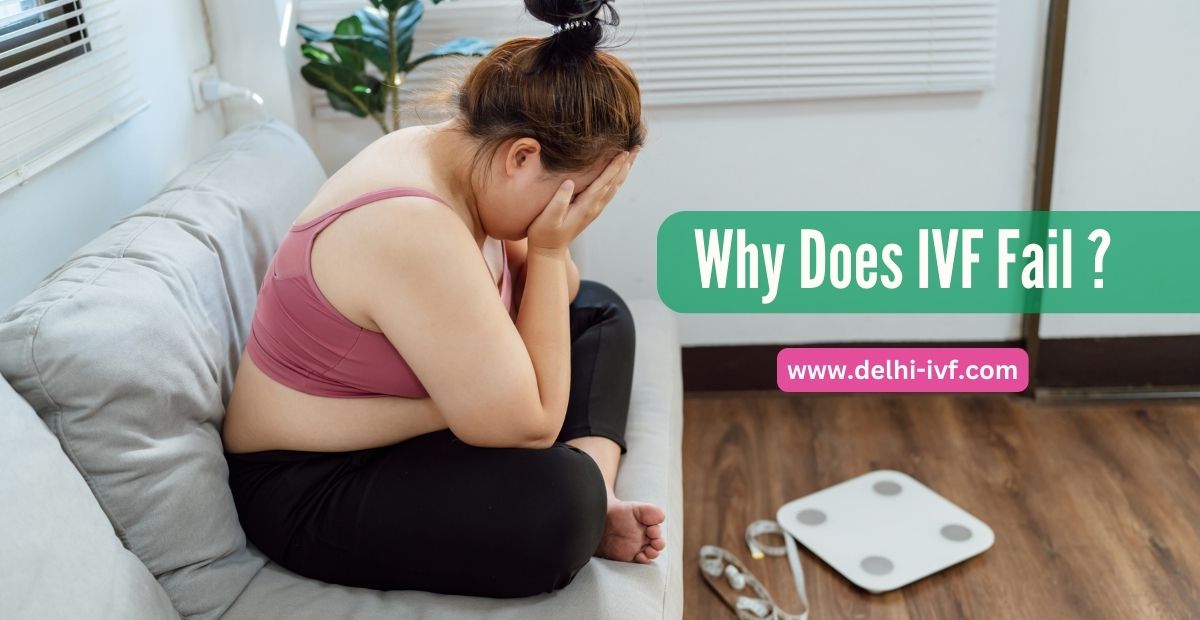After a failed cycle it is generally difficult to come to terms. Why it happened and why me? Is something wrong with me? This is in spite of the fact that there is a clear understanding about the success rate of IVF procedure. A patient wants to know why did it happen in spite of the fact the eggs were normal; the sperms normally fertilized the eggs; there were several good looking embryos and still, the IVF cycle failed. The patient needs answers to all such questions, why the IVF cycle failed.
Causes of IVF Failure:
There can be several causes for a failed cycle, some of them understandable while there are some causes about which we can only guess. A good doctor can address the known causes in the following cycle to improve the outcome of the IVF cycle. First I will deal with factors which are known to make IVF cycle difficult.
Does Age Matter?
Yes! one of the several causes for a failed IVF cycle, is the age of the mother. Since we know that a female is endowed with a fixed number of eggs at the time of the birth, the quantity and quality of eggs go on decreasing with age. By the time a mother is 35-40 years of age, the success rate of IVF cycle decreases significantly. (Talk to your doctor about the success rate for your age).
How Important is The Egg Quality?
The quality and quantity of egg plays a important role in the success of IVF. If during ovarian stimulation the eggs do not develop properly in sufficient numbers due to age or poor response, or due to PCOD, an experienced doctor has to tweak the stimulation protocol to get better response by monitoring the cycle closely by ultrasound for antral follicle count and estrogen levels in the blood.
Sperm Quality:
The sperm quantity and qualities are important determinants of success in IVF cycles. With the advent of ICSI and some other selection procedures IMSI and PICSI, to increase the success rate, the number of sperms and some other semen parameters are not very important, except in cases of total failure of the testis. Another sperm factor which affects the implantation and early pregnancy is the DNA fragmentation for which we have no answer.
Egg Retrieval and Embryo Transfer:
To ensure good IVF outcome an experienced doctor ensures a good protocol for egg stimulation by selecting the right protocol for your age and other conditions. He ensures that the trigger is given at the right time for egg maturation and pickup to get optimum results.
Once the eggs are picked up an expert embryologist endures that these eggs are fertilized by ICSI with best available sperm.
Time of Embryo Transfer:
Normally the embryos are selected following an internationally accepted grading system for embryos. The day for transfer of good quality embryos, is day 3, but based on the opinion of an expert embryologist it can be postponed to day 5 or 6 if embryo culture facilities are available. In case of PGD, the embryo is generally transferred on day 6. It improves the selection of embryos as only healthy embryo survive upto day 6.
Another factor, which determines the day of embryo transfer is the window of implantation. Normally the embryos are transferred on day 3, but in some cases of repeated IVF failure, the window of implantation is slightly late. The exact day for such cases can be determined by a special test (Endometrial receptivity array), and the embryos can be transferred during this time to improve the chances of implantation.
Quality of Embryos:
Poor quality eggs will give rise to poor quality embryos. The quality of sperms though is important, but not as much the quality of eggs. On day 3 after fertilization, a good quality embryo should be 6-8 cell stage with regular shape blastomeres. The embryos that do not reach this stage cannot be transferred on day3. Such embryo may have chromosomal abnormalities and implantation of such embryos leads to ealy miscarriage.
Treatment with DHEA not only increases the success rate, but also improves the quality of eggs in case of premature ovarian failure.
Response of The Ovaries:
Failure to respond sufficiently to the standard protocol to recruit sufficient number of eggs is one of the important factors, affecting IVF success rates. It is known that ovarian reserve can be predicted by measuring AMH and FSH levels in the blood and this helps the doctor to decide if he should with own eggs or donor eggs.
Chromosomal Abnormalities:
With advancing age, chromosomal changes are on the rise, and they play an important role in implantation failure. The chromosomal changes in the female have more significance than the changes in the male. Preimplantation genetic diagnosis (PGD) is of help in such patients to improve IVF outcome. It is indicated that with increasing age the incidence of aneuploidy increases in eggs. This generally is the cause of implantation failure or early miscarriage in women.


 Your Journey to Parenthood Begins with us!
Your Journey to Parenthood Begins with us!